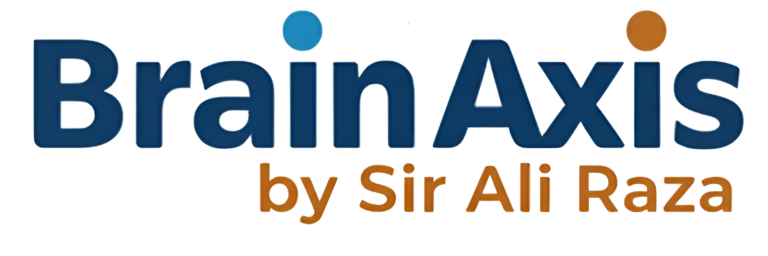BASIC LEVEL
Question 1
108 identical books have a mass of 30 kg. Find
(i) the mass of 150 such books.
Solution :
Mass of 1 book = 30 kg / 108 books = 0.277 kg/book.
Mass of 150 books = 0.277 * 150 = 41.67 kg.
(ii) the number of such books that have a mass of 20 kg.
To find the number of books with a mass of 20 kg, divide the total mass by the mass of 1 book (0.277 kg/book).
Number of books = 20 kg / 0.277 kg/book = 72 books.
Question 2
In a bookstore, 60 identical books occupy a length of 1.5 m on a shelf. Find
(i) the length occupied by 50 such books on a shelf
Solution :
60 identical books occupy 1.5m on shelf.
1 book occupy 1.5m / 60 = 0.025 m/book.
50 books occupy = 50 x 0.025 = 1.25 m.
(ii) The number of such books needed to completely occupy a shelf that is 80 cm long.
Solution :
80 cm = 0.8 m
1 Book occupy = 0.025 meters of length.
No. of books needed to completely occupy a shelf that is 80 cm long = 0.8 / 0.025 = 32 books.
Question 3
If x is directly proportional to y and x=4.5 when y=3. Find
(i) Equation connecting x and y
Solution :
Relationship for direct proportion is x=ky.
Using the given values, 4.5=k(3)
so
k = 4.5 / 3
k = 1.5
The equation is x=1.5y.
(ii) The value of x when y=6
Solution :
For y=6 , substitute this into the equation:
x=ky
x=1.5(6)
x=9.
(iii) The value of y when x=12
Solution :
When x=12, substitute this into the equation:
x=ky
12=1.5y
y=12 / 1.5=8.
Question 4
Q4. If Q is directly proportional to P and Q=28 when P=4
(i) Express Q in terms of P
The relationship is Q=kP.
Using the given values, 28=k(4)
so, k = 28 / 4 =7.
The equation is Q=7P.
(ii) Find the value of Q when P=5
When P=5,
substitute this into the equation: Q=7(5) = 35
(iii) Calculate the value of P when Q=42.
When Q=42,
substitute this into the equation: 42=7P
so
P = 42/7= 6.
INTERMEDIATE LEVEL
Question 5
a) Find the cost of 10 kg of tea leaves when 3 kg of tea leaves cost $18.
Solution:
- 3 kg of tea leaves cost $18
- 1 kg of tea leaves cost : $18 / 3 kg = $6 per kg.
- 10 kg of tea leaves cost : $6/kg x 10 kg = $60.
b) Find the cost of a kg of sugar when b kg of sugar cost c$.
Solution:
- Find the cost per kilogram (kg): Total Cost / Total Weight= c/b
- Calculate the cost for
akg: a x (c/b) - ac / b Dollars
So, the cost of a kg of sugar is ac / b dollars.
Question 6
Question: 95 of a piece of metal has a mass of 7 kg. What is the mass of 72 of the piece of metal?
Solution:
Question 7
If z is directly proportional to x and z=12 when x=3, find the value of x when z=18.
Solution:
- The relationship for direct proportion is z=kx, where k is the constant of proportionality.
- Use the given values to find k: 12=k(3); k=12 / 3=4.
- The equation is z=4x.
- Now, find x when z = 18
- 18=4x
- x=18/4
- x= 4.5.
Question 8
If B is directly proportional to A and B=3 when A=18, find the value of B when A=24.
Solution:
- The relationship for direct proportion is B=kA.
- Use the given values to find k:
3=k(18)
k=3/18
k=1/6. - The equation is B = \tfrac{1}{6} A
- Now, find B when A = 24:
- B = \tfrac{1}{6} x24
- B=4.
Question 9
For each of the following, y is directly proportional to x. Copy and complete the tables.
PART a
Solution:
- The relationship is y = kx
- Using table data : x= 24, y=6
- 6 = k(24)
- k = 6/24
- k =1/4=0.25
- x=4
- Relationship → y = kx
- y = (\tfrac{1}{4}) 4
- y=1
- x=20
- Relationship → y = kx
- y = (\tfrac{1}{4}) 20
- y=5
- y=9
- Relationship → y = kx
- 9 = (\tfrac{1}{4}) x
- x=9×4
- x=36
- y=11
- Relationship → y = kx
- 11 = (\tfrac{1}{4}) x
- y=44
PART b
Solution:
- The relationship is y = kx
- Using table data : x=3, y=3.6
- 3.6 = k(3)
- k = 3.6/3
- k =1.2
- x=2
- Relationship → y = kx
- y = 1.2 x 2
- y=2.4
- x=5.5
- Relationship → y = kx
- y = 1.2 x 5.5
- y=6.6
- y=9.6
- Relationship → y = kx
- 9.6 = 1.2 x (x)
- x=9.6 / 1.2
- x=8
- y=11.4
- Relationship → y = kx
- 11.4 = 1.2 x (x)
- y=9.5
